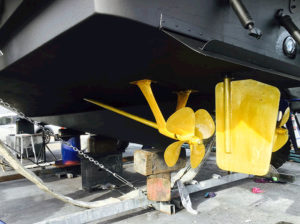Tips for Finding Water Leaks on Boats
If you love boating, eventually you will have to cope with a water leak. Though most water leaks don’t sink a boat, preventing them as soon as they are detected can eliminate more serious problems.

Normal sources of marine leakage include prop shaft seals, the hull itself, rudder housings, and leaky hoses. Any below waterline component can leak while the boat is static, but some leaks are intermittent. The engine cooling system is a primary candidates for leaks.
Once you locate the leak, wash and dry the region; then monitor it to verify that you really have fixed the leak. Note that some leaks are extremely slow, so the process could take some time and maybe even repeat testing. Try to test just one potential leak source at any given time.
If you feel a leaky tank is the problem, think about a dye test – it’s cheaper and less destructive than the usual pressure test.
We frequently hear condensation blamed for moisture conditions in motorboats. While condensation is possible at certain times of the year, it’s fairly easily controlled with heating units or de-humidifiers. Of course, the most popular method to reduce cabin moisture cabin is by using the vessel! Open it up to the sun and get the fresh air flowing. Ventilate the vessel by using it – that’s why you bought it!